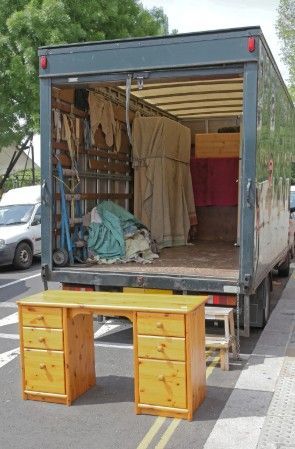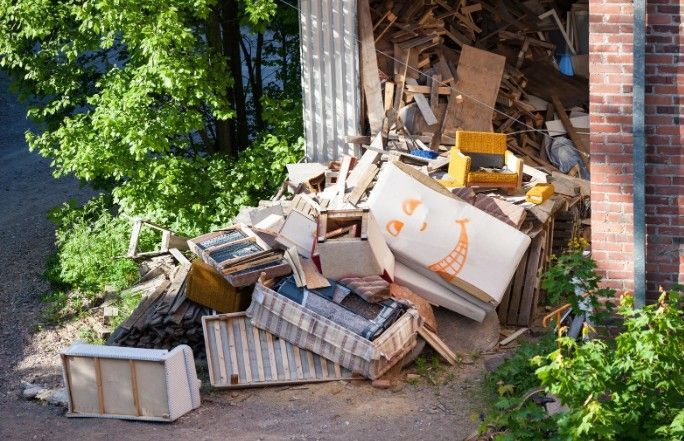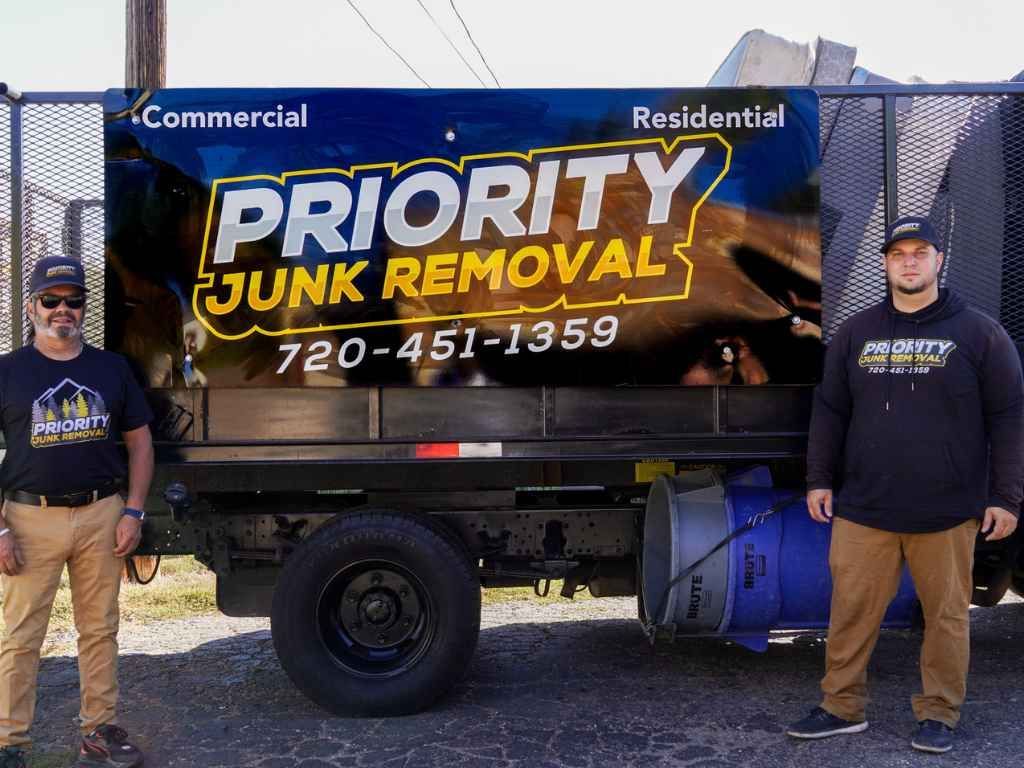How to Get Rid of Unwanted Furniture in Your Commercial Space
Every business evolves. Office layouts change, furniture wears out, and at some point, getting rid of outdated, broken, or unnecessary pieces becomes inevitable. Whether you're downsizing, remodeling, or upgrading your workspace, removing unwanted furniture in a commercial setting isn’t as simple as dragging an old chair to the curb. Proper disposal requires planning, strategy, and an awareness of environmentally friendly options.
Understanding the Scope of the Job
Before you even think about how to remove furniture, assess the volume and type of items you need to dispose of. Are you dealing with office desks, cubicles, filing cabinets, or breakroom furniture? Perhaps it’s an entire building full of outdated fixtures. Identifying the scope will help determine the best removal approach, whether through donation, recycling, or professional junk removal services.
Donate for a Purpose
Many organizations are in need of quality used furniture. Nonprofits, schools, and community centers often welcome office chairs, desks, and conference tables that are still in usable condition. If your furniture isn’t damaged, donating is a responsible and impactful way to get rid of it.
- Local Charities: Many charitable organizations, such as Goodwill or Habitat for Humanity, accept large furniture donations and may even provide pickup services.
- Schools and Libraries: Educational institutions often need desks, chairs, and shelving units.
- Startup Businesses: Small businesses and entrepreneurs with tight budgets may appreciate gently used office furniture.
Resell to Recoup Costs

If your furniture is still valuable, selling it could be a lucrative option. Many businesses opt for liquidation sales, online marketplaces, or consignment stores to recover some investment.
- Online Marketplaces: Websites like Craigslist, Facebook Marketplace, and OfferUp make it easy to list office furniture for local buyers.
- Office Liquidation Services: Some companies specialize in buying and reselling used office furniture, offering bulk purchasing options.
- Auction Houses: Large businesses closing or moving often auction off assets, including furniture.
Recycling: An Eco-Friendly Approach
If donation or resale isn't an option, recycling is the next best thing. Many furniture materials—metal, wood, plastic, and glass—can be repurposed.
- Metal Components: Filing cabinets, metal desks, and office chairs with steel frames can be sent to scrap metal facilities.
- Wood and Particleboard: While not all wood can be recycled, some organizations specialize in repurposing wood furniture.
- Electronics and Accessories: Office furniture often includes built-in electronics, such as cubicles with power strips. These should be separated and disposed of properly.
Repurpose for Internal Use
Before hauling everything away, consider whether some pieces could be reimagined or repurposed within your company.
- Breakroom Upgrades: Convert an old conference table into a communal dining area.
- Storage Solutions: Filing cabinets can be used for organizing supplies or repurposed into unique shelving
- Employee Lounge Areas: Sofas and chairs from meeting rooms can be relocated to relaxation zones
Professional Junk Removal for Efficiency
For businesses with large quantities of furniture or strict timelines, professional junk removal services are the best option. A reputable removal company handles heavy lifting, logistics, and eco-friendly disposal, ensuring efficiency and compliance with local regulations.
Avoiding Common Mistakes in Furniture Removal
Even with the best intentions, mistakes can be costly. Avoid these common pitfalls:
- Ignoring Local Disposal Laws: Dumping furniture illegally can result in hefty fines. Always verify regulations in your area
- Underestimating Labor Needs: Moving heavy furniture requires manpower. Ensure you have enough staff or hire professionals.
- Last-Minute Planning: Scheduling removal last minute may lead to unexpected costs or delays.
- Not Prioritizing Sustainability: Landfilling should be the last resort. Always explore donation and recycling first.
Planning for Future Furniture Changes
Reducing the need for frequent disposal starts with smart furniture purchasing and management strategies:
- Buy Modular Furniture: Modular pieces are easier to reconfigure and repurpose.
- Invest in Durable Materials: High-quality furniture lasts longer and requires less frequent replacement.
- Implement a Recycling Program: Regularly assess office furniture and establish donation or resale plans.
Effortless Ways to Clear Out Old Office Furniture
Commercial spaces need to stay functional, stylish, and clutter-free to maintain productivity. When old furniture piles up, it can make the workspace feel outdated and inefficient. Whether you’re upgrading to a new look or simply clearing space for better organization, removing unwanted furniture should be done strategically. By choosing smart disposal methods, businesses can efficiently declutter without unnecessary hassle or costs. Planning ahead prevents disruptions to daily operations and ensures the process runs smoothly.
Instead of dumping everything in a landfill, explore eco-friendly alternatives. Donating to charities, repurposing materials, or recycling components can make a significant difference. Some organizations offer pickup services, making it easier for businesses to get rid of bulky items responsibly. If time is limited, professional junk removal services can handle everything efficiently.
Transforming Your Office Space Through Smart Furniture Disposal
The furniture in your office plays a crucial role in shaping the work environment. Outdated or damaged pieces not only take up space but also diminish the professional appeal of your business. Getting rid of unwanted furniture allows for fresh designs, better functionality, and improved employee comfort. However, the key to successful furniture disposal is having a well-thought-out plan to ensure efficiency.
A structured approach includes assessing which items can be reused, sold, or donated before considering removal services. Many companies fail to maximize the value of their old furniture by overlooking resale opportunities or missing donation programs. By making informed choices, businesses can contribute to sustainability while optimizing workspace potential.
Clearing Commercial Furniture Without Disrupting Business Operations
Office furniture removal shouldn’t interfere with daily productivity. Many businesses struggle with coordinating disposal while keeping operations running smoothly. A well-planned strategy ensures the process is efficient and minimally disruptive. Assigning a dedicated team or scheduling removals outside of business hours can help maintain workflow efficiency. Proper coordination with removal services also prevents unnecessary delays and logistical issues.
Advance planning is key when dealing with bulk furniture disposal. Sorting items into different categories—such as recyclable, reusable, and junk—makes the process more manageable. Partnering with an experienced junk removal service can further simplify the process, allowing businesses to focus on core operations.
Maximizing Value When Removing Office Furniture
Disposing of old office furniture doesn’t mean losing its value. Many businesses overlook the potential to recover costs by selling, donating, or repurposing their unwanted pieces. High-quality desks, chairs, and filing cabinets can be resold to startups, coworking spaces, or refurbishing companies. This not only recoups a portion of the investment but also extends the lifespan of the furniture, reducing overall waste.
Donation is another excellent way to extract value from office furniture removal. Many nonprofits and community organizations appreciate contributions, and some even offer tax deductions for donations. Businesses that donate can enhance their corporate social responsibility while clearing space efficiently. For those looking to streamline the process, professional removal services provide an easy solution, handling logistics while ensuring items are disposed of responsibly.
The Hidden Costs of Improper Office Furniture Disposal
Businesses that take a careless approach to furniture disposal may face hidden expenses. Improper dumping can lead to hefty fines, and inefficient disposal methods waste valuable resources. Many cities have strict guidelines on where and how large office furniture should be discarded, making compliance a key factor in cost-effective removal. Companies that fail to plan ahead often end up paying more in last-minute removal fees or storage costs for unused items.
Beyond financial expenses, improper disposal can also damage a business’s reputation. Clients and employees value companies that demonstrate environmental responsibility. Dumping usable furniture in landfills instead of opting for donation or recycling can create a negative impression. A responsible removal strategy not only avoids unnecessary costs but also supports sustainability efforts.
Junk Removal Services vs DIY Furniture Disposal in Offices
When clearing out commercial furniture, business owners often debate whether to handle the process internally or hire professionals. DIY furniture disposal may seem cost-effective at first, but the reality is often more complex. Large furniture requires proper disassembly, heavy lifting, and transportation to disposal sites. Without the right resources, businesses may face safety hazards, employee downtime, and logistical issues.
Professional junk removal services offer a hassle-free alternative. With trained teams, proper equipment, and disposal expertise, they efficiently remove office furniture while ensuring items are handled responsibly. Many services provide eco-friendly solutions, ensuring recyclables are processed correctly and donations reach organizations in need.
Sustainable Office Cleanouts for a Greener Business Future
Sustainability is becoming a priority for modern businesses, and office cleanouts provide an opportunity to reinforce green initiatives. Instead of viewing old furniture as waste, companies can integrate environmentally friendly practices into their disposal methods. Recycling, upcycling, and responsible donation reduce the amount of waste that ends up in landfills, contributing to a more sustainable corporate footprint.
Many removal services now offer green solutions tailored to eco-conscious businesses. Choosing a provider that prioritizes sustainability ensures materials are disposed of ethically. Items that can’t be repurposed are often broken down into recyclable components, reducing environmental impact. By incorporating sustainability into office cleanouts, businesses not only clear space but also demonstrate their commitment to responsible waste management.
Conclusion
Clearing out unwanted furniture from a commercial space requires thoughtful planning, whether through donation, resale, recycling, or professional junk removal. Each option comes with benefits, but efficiency and sustainability should be at the forefront of the decision-making process. For hassle-free removal, professional services can streamline the process and ensure compliance with disposal regulations.
For businesses in Littleton, Colorado, looking for a reliable junk removal partner, Priority Junk Removal offers efficient, environmentally responsible solutions. Contact them at 6091 South Spotswood Street, Littleton, Colorado 80120, United States. Call 720-451-1359 or email priorityjunkremoval@gmail.com to schedule a pickup today!











